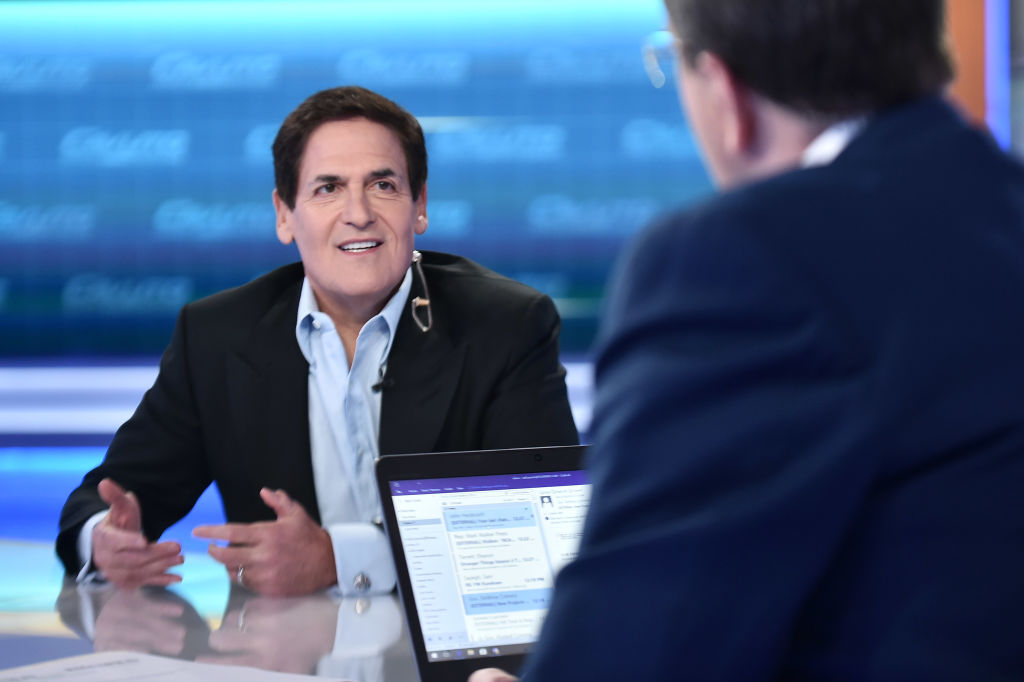In his recent interview on The Daily Show, Mark Cuban told Jon Stewart that he wants to “f–k up” healthcare.
Cuban comes off as the antithesis of the infamously price-gouging “Pharma Bro” Martin Shkreli. Shkreli was ordered to pay $64 million in restitution and stay out of the pharmaceutical industry after hiking the price of a life-saving drug for those living with HIV and AIDS from $13.50 per pill to a $750 per pill overnight.
Billed as an entrepreneur, investor, and Shark Tank star, Cuban knows what goes into a successful business. A tech entrepreneur, Cuban branched into pharmaceuticals in 2021 aiming to sell drugs at cost, plus 15 percent.
Cuban’s plan includes a 15% markup over operating expenses, a $3 pharmacy handling fee, and a $5 shipping fee. The company plans to publish pricing on what it pays for drugs — far more transparency than drug companies typically offer.
Mark Cuban Cost Plus Drug Company’s medicines are available at most Kroger locations.
Cost Plus Marketing Challenges
But Cost Plus still has some challenges to iron out. First, the company faces stiff competition from services like Amazon’s RxPass, which offers access to generic medications as an add-on to Amazon Prime access at discount rates.
Second, physicians may be unaware of it. An important piece of biopharma marketing is ensuring doctors are aware of options when they can prescribe cheaper generic medications instead of more expensive “brand-name” medications.
Drug and pharmaceutical manufacturers typically hire pharmaceutical sales representatives who build relationships with healthcare providers. Of course, this operational expense adds to the retail price of the final product — the medications. Whether Cuban can bypass this part of the business model remains to be seen.
A.I.-Driven Market Adaptability for Supply Shortages
However, Cuban is undeterred. Cost Plus Drug recently opened a new facility to manufacture generic medications that it says are in short supply.
In a White House Roundtable video on reducing healthcare costs, CEO Alex Oshmyansky said the facility will start with manufacturing injectable medications, such as insulin. The facility will use robotics and AI to quickly pivot from manufacturing one medication to another based on data that indicates drugs is in short supply.
This flexibility will help reduce costs while enabling more generic medications to be manufactured in the United States. Oshmyansky says the process will help avoid common industry pitfalls, such as fragile supply chains and manufacturing lines that can break.
Regulatory Compliance
He also says that regulatory compliance is important. The FDA can shut down medication manufacturers for lack of compliance with safety standards. Although the shutdowns are often warranted, they can also lead to significant supply shortages that leave patients scrambling for alternatives.
In December 2023, a judge ordered Pharmasol to be shuttered for failing to meet FDA standards, leading to the declaration of some of its products as “adulterated.” Pharmasol manufactured drugs such as Lexette, an over-the-counter medication used to treat skin irritation, and dexamethasone, which treats arthritis-related inflammation.
As of February 2024, Ascent has been embroiled in a battle with the DEA. The dispute involves accusations of poor bookkeeping that may have allowed millions of pills of a generic version of Adderall to go unaccounted for. The DEA shut down Ascent led to a significant shortage of medication that is commonly used to treat ADHD.
If Cost Plus Drug achieves its vision, the new facility could quickly change gears and fill the gap. For example, it could produce a generic version of Adderall approved by the FDA to compensate for expected supply shortages.
Mark Cuban believes he can bring down the cost of many critical medications with the “Cost Plus” plan and provide greater transparency throughout the biopharmaceutical industry.
Related: Mark Cuban Says California DMV’s Move to Blockchain “Amazing Step Forward”


